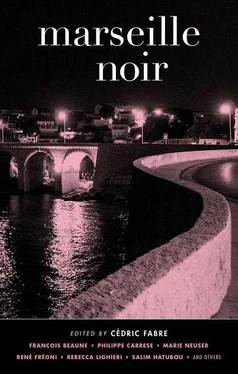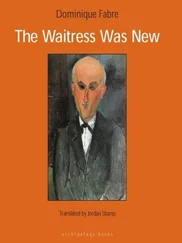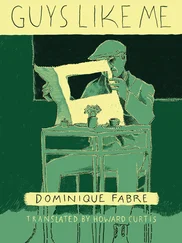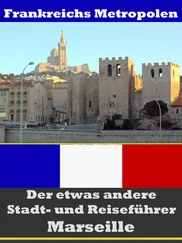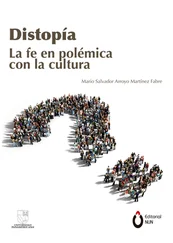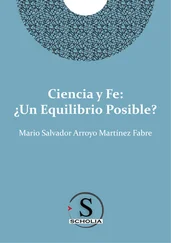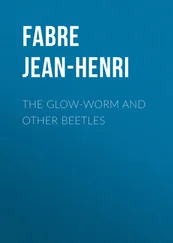Cédric Fabre - Marseille Noir
Здесь есть возможность читать онлайн «Cédric Fabre - Marseille Noir» весь текст электронной книги совершенно бесплатно (целиком полную версию без сокращений). В некоторых случаях можно слушать аудио, скачать через торрент в формате fb2 и присутствует краткое содержание. Год выпуска: 2015, Издательство: akashic books, Жанр: Крутой детектив, на английском языке. Описание произведения, (предисловие) а так же отзывы посетителей доступны на портале библиотеки ЛибКат.
- Название:Marseille Noir
- Автор:
- Издательство:akashic books
- Жанр:
- Год:2015
- ISBN:нет данных
- Рейтинг книги:5 / 5. Голосов: 1
-
Избранное:Добавить в избранное
- Отзывы:
-
Ваша оценка:
- 100
- 1
- 2
- 3
- 4
- 5
Marseille Noir: краткое содержание, описание и аннотация
Предлагаем к чтению аннотацию, описание, краткое содержание или предисловие (зависит от того, что написал сам автор книги «Marseille Noir»). Если вы не нашли необходимую информацию о книге — напишите в комментариях, мы постараемся отыскать её.
Marseille Noir — читать онлайн бесплатно полную книгу (весь текст) целиком
Ниже представлен текст книги, разбитый по страницам. Система сохранения места последней прочитанной страницы, позволяет с удобством читать онлайн бесплатно книгу «Marseille Noir», без необходимости каждый раз заново искать на чём Вы остановились. Поставьте закладку, и сможете в любой момент перейти на страницу, на которой закончили чтение.
Интервал:
Закладка:
It takes them two days to sniff out the second thug. In Carnoux-en-Provence. He’s hiding out in a convalescent home, wants to wrap up his mission.
Fearing accomplices inside the home, Miguel suggests they wait till the man returns to the village to finish the job. “Let him stew in his own juice.”
Times goes by. Nothing. No prowler around. Three days and no weasel to be seen. Miguel agrees to go out fishing. They pick up their nets below the high path along the coast. A bream, a few sardines. As they peer at the houses up there over the sea, they decide to go as far as the local Valparaiso, a good cable’s length from the port, a cascade of white shacks that tumble down to the sea, called by its inhabitants “Tortilla Flat.”
“You know people there?” Miguel asks.
The pilot steers his boat over between the rocks and ties it to a buoy. They climb the steep slope in silence. In the gardens and on the terraces built on wooden pilings, people are sitting at tables, joking and chatting. Pierrot describes the thug to them. Nobody ran into anybody asking any questions. At the center of an orange-painted patio, a woman is hanging up her wash and asks about an old lady she hasn’t seen in the village café for a while.
“Didn’t see her,” Pierrot says.
She offers them a glass of her homemade chartreuse, a mixture of thyme and herbs. Miguel tastes the concoction.
“A guy in a black turtleneck. Thin.”
She shakes her head. “Ask Germaine.”
She walks them to the hotel two houses farther up, a rendezvous for illegitimate couples. A stout woman with bleached hair opens the door of her den.
“Oh, it’s you, honey, come on in.”
They have a stunning view from her place; the virulence of the city loses its glitter. The traps of memory are assigned the same mission: burying the sediments of shame deeper and deeper. Crimes stuffed into a casket with their bones stripped from their flesh. A sea flat as glass, with the buildings of the Roy d’Espagne district on the horizon. Their windows send their ardent lights back to the sunset. Worthy of a lithograph.
After she hears the description of the ghost from the past, Germaine says she does remember getting a visit awhile ago from two men. They were nosy, a little too insistent. As the madam of a semi-legal brothel, she knows how to hold her tongue.
“They were turned away by Robert and Mario. You must’ve run into them down below.”
“They didn’t tell us anything.”
Pierrot offers the fish to their hostess.
“You buying info now?”
Miguel decides to end the investigation right there. He knew he had to get rid of that old debt from the depths of time, had to free himself from it. An ax hanging over you that never falls, it puts a brake on your life. They stay there until nightfall, talking nonstop. Everything becomes easy and nice again.
Since the darkness is growing thicker and thicker, they leave the boat. It’s not too long a walk back to L’Estaque. At the second crossroads, after they pass a beach and a few scooters with their lights turned off, a rock goes whistling by their ears.
The stone-throwing kids run away. The village is drifting off to sleep, the last restaurants folding up their tables. The wind is rumbling.
All night long, Miguel sleeps with one eye open, interpreting the slightest little rustling sound, a shutter banging, fearful dogs, the stir of the far-off city slowly burning off its last toxins. In a twisted dream that torments him till dawn, he’s a lab rat trapped in a fenced-off tunnel, and then the waters rush in, green and muddy. Impossible to escape, twenty of them are going to be submerged but nobody screams.
When he wakes with a start, it’s too late. The enemy is in the fort. Sitting at the kitchen table, a man in black is watching him, a dark revolver with a silencer in front of him on the peeling oilcloth.
“I could’ve killed you in your sleep. I didn’t do it and I won’t. You’re worthless, you’re not even worth hating. You’re living in a dump, surrounded by losers. You—”
“Shut up.”
The man gets up and stuffs the Colt back inside his belt. “Just remind yourself there’s no hiding place, no protection. Somebody else will find you.”
The man leaves the door open and the cool morning breeze drifts into Miguel’s bedroom. With his hands crossed behind his head, he lies in bed and watches a white spider moving slowly toward its prey, a fly that’s not moving anymore, all wrapped up in a deadly sarcophagus.
The ordinary sounds of day grow louder, everything is falling back into place. The storekeepers are opening up their shops, the school is waiting for the children, and the butcher is unloading carcasses of beef.
WHAT CAN I SAY?
by REBECCA LIGHIERI
Longchamp
I was born on traverse de l’Observatoire, a street name that will mean nothing to you. Who even remembers there was an astronomical observatory in Marseille once, first in the Accoules quarter and then on the Longchamp plateau?
Almost a dead-end street, traverse de l’Observatoire stops at boulevard Camille Flammarion. And unless you want to consult Esmée Villalonga, a fortune-teller and tarot reader who’s been at number 27 for years, there’s no reason to go there, not you or anyone else.
But I was born there, and that’s different. And since my parents never left the three-room apartment where I grew up, naturally I have to go back, even though visiting them is no picnic — a drag, more like.
There’s nothing much to say about my childhood neighborhood, except that it doesn’t look at all like the idea people have of Marseille when they’ve never been there. Between place Leverrier and the square in front of the Jardin zoologique, you forget pretty fast that the city is a port. The Palais Longchamp looks like an enclave on the Danube with its lawns and cascades, its dome, its colonnades, all green and cool, a thousand miles from Luminy and L’Estaque, not to mention the Quartiers Nord, the North End.
I’m not afraid to say that this “palace” was mine, my domain, my fief, the enchanted kingdom I roamed ever since I was five, under the watchful, sullen eye of my mother, who grew more and more remote. She had better things to do than bring her son to the Jardin zoologique — the name the park kept despite the fact that there hasn’t been the ghost of a bear or a giraffe there since the end of the eighties.
From the age of seven on, I went there alone, barely telling anyone I was going out. At any rate, when they weren’t selling their stuff at the markets, my parents would sleep, tired of everything, of getting up at dawn, of loading their van, of working in all kinds of weather; tired of trying to sell their junk: imitation leather jackets, synthetic sweaters, fancy underwear, tight spandex or polyester dresses, a whole load of hideous clothes they wore themselves and dressed their three children in too.
I’m the oldest. After me, Salvatore, came Libero and Allegra. Even though both my parents grew up in Marseille without actually being born here, they wanted to remain faithful to their Italian origin by this choice of names while showing a certain optimism, a certain confidence in the world and their offspring. Optimism and confidence quickly defeated by reality, judging by the bitter sadness I’ve always seen in them, their ceaseless recriminations, and their indifference to anything that wasn’t directly connected to mere survival: filling their shopping cart, paying their rent, and basta.
Salvatore—“the savior”—are you kidding? Yes, I did believe in this predestiny, but now that tragedy has struck, now that I killed the only woman I ever loved, I tell myself it would have been better to consult my neighbor Esmée Villalonga so she could have warned me, so she could have reminded me that in Marseille tarot, the Tower always meant doom.
Читать дальшеИнтервал:
Закладка:
Похожие книги на «Marseille Noir»
Представляем Вашему вниманию похожие книги на «Marseille Noir» списком для выбора. Мы отобрали схожую по названию и смыслу литературу в надежде предоставить читателям больше вариантов отыскать новые, интересные, ещё непрочитанные произведения.
Обсуждение, отзывы о книге «Marseille Noir» и просто собственные мнения читателей. Оставьте ваши комментарии, напишите, что Вы думаете о произведении, его смысле или главных героях. Укажите что конкретно понравилось, а что нет, и почему Вы так считаете.
